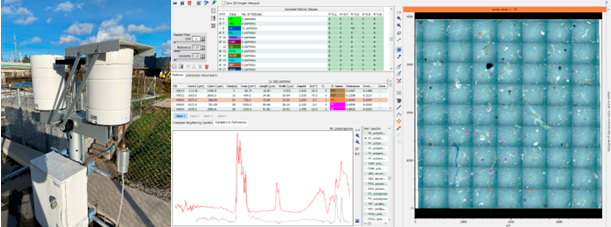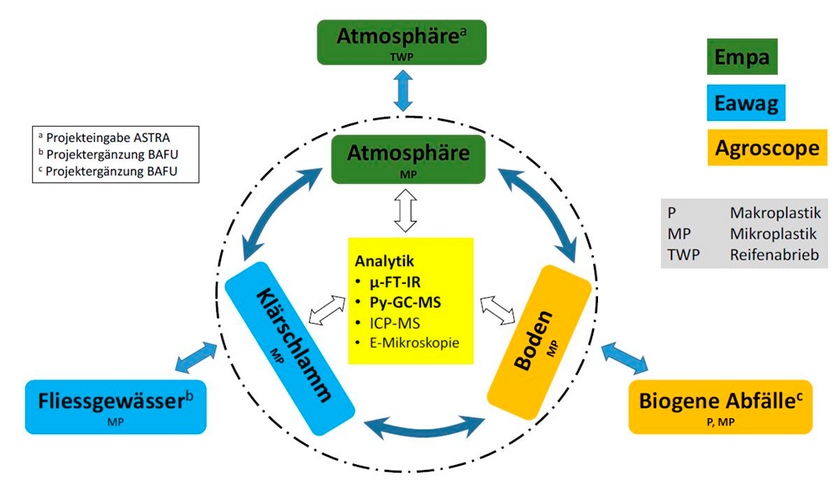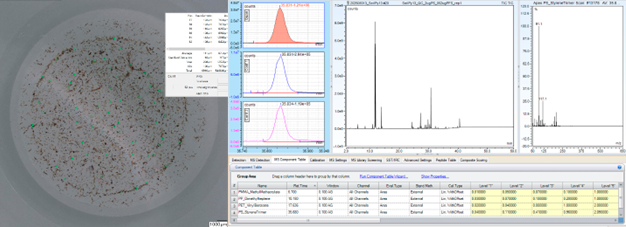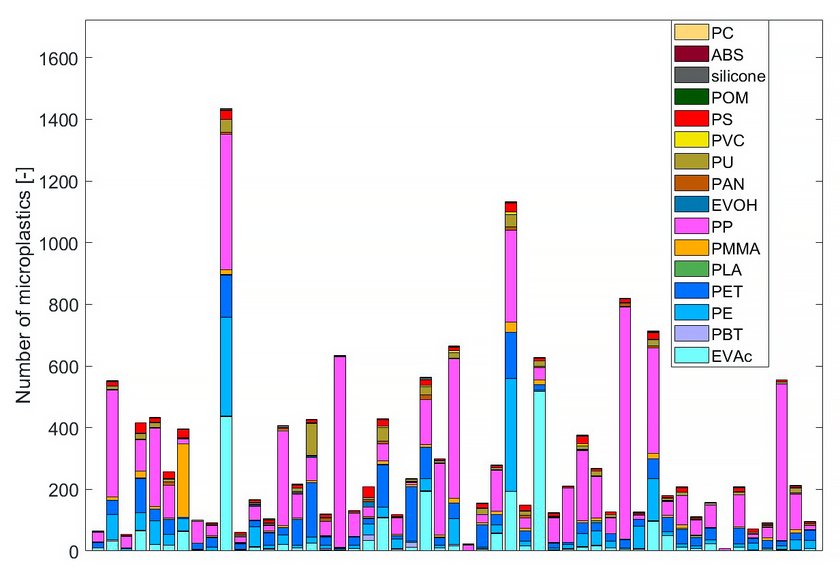Department Process Engineering
Microplastics in the environment: analysis and inventory in various environmental compartments

Improper disposal and inadequate waste treatment have led to the accumulation of plastic in the environment. Plastic has been detected in various environmental compartments, including freshwater, soil and the atmosphere. Plastics are broadly classified into macroplastics and microplastics. Microplastics are plastic particles smaller than 5 mm that can enter the environment through processes such as the abrasion of plastic products or the breakdown of larger plastic items.
The type, quantity and distribution of microplastics across environmental compartments are not yet well understood. This is due to the absence of uniform, standardized protocols for sampling, preparatio, and analysis. Existing studies can detect microplastics, but a comprehensive quantitative assessment of pollution levels in different environmental compartments has yet to be established.
In the three projects, the compartments are being examined for microplastic content:
- Soil (Agroscope, Thomas Bucheli, National Soil Monitoring (NABO), Reto Meuli)
- Atmosphere (Empa, National Air Pollution Monitoring Network (NABEL), Christoph Hüglin)
- Wastewater/sewage sludge (Eawag, Ralf Kaegi) tested for microplastic content
The interdisciplinary consortium brings together the necessary expertise in the aforementioned areas and enables a cross-sector investigation of microplastic pollution. The joint development of analytical methods based on the latest research plays a central role in this.
In particular, joint sampling strategies and processing methods are being developed to accommodate both mass-based and particle-based measurement approaches, including particle size and count.
The interdisciplinary approach, along with close cooperation and coordination between the three projects, enables both the comparison of microplastic pollution across environmental compartments and the assessment of key input pathways into soils as a central sink—particularly atmospheric transport and deposition, biogenic waste and wastewater sludge. Additional aspects, such as tire abrasion, will be examined in future projects (Figure 1). Furthermore, the wastewater sludge module is planned to be supplemented with measurements at selected stations of the National Long-Term Monitoring of Watercourses (NADUF) to estimate microplastic export via surface waters in parallel with the sewage sludge study.
1) Microplastics in soil: Establishment and validation of an analytical method & initial screening
Project objectives
- Establishment and validation of analytics (py/GC-MS) to determine MP in soils quantitatively and qualitatively
- Collection of standardized data on the contamination of environmental compartments by plastics
- The project also provides the basis for a number of objectives and strategic directions of the Swiss Soil Strategy of the FOEN, in particular with regard to “pollutant inputs from agriculture
2) Atmospheric deposition of microplastics in Switzerland (Atmo-MP)
Project objectives
- Evaluation and validation of analytics (µ-FT-IR) to quantitatively and qualitatively determine MP in atmospheric deposition samples.
- Separate collection of annual deposition rates of airborne (dry deposition) and precipitation-borne (wet deposition) MPs.
- Comparison of MP inputs from rural and densely populated areas.

3) Microplastics in Swiss wastewater treatment plants (MICHARA)
Project objectives
- Evaluation and validation of analytics (µ-FT-IR, Py-GC/MS) to quantitatively detect - MP in sewage sludge samples.
- Estimation of daily fluctuations in MP concentrations in wastewater.
- Quantification of MP flows in urban wastewater streams and classification of the importance of wastwater treatment plants as sources of MP in surface waters.







